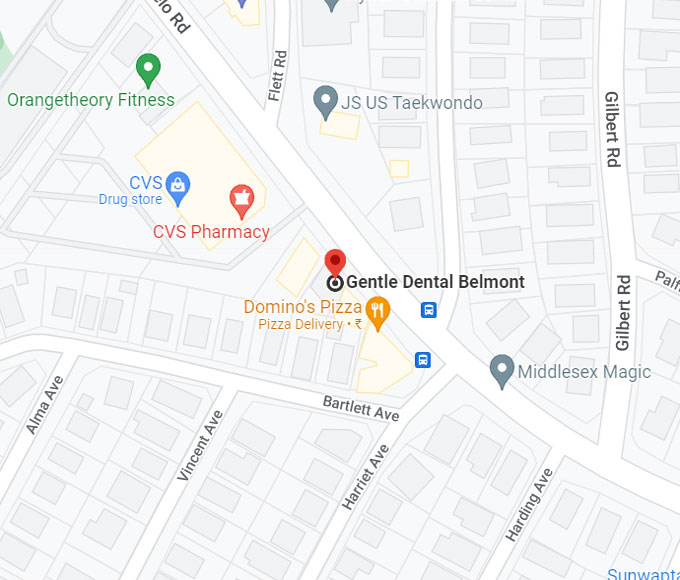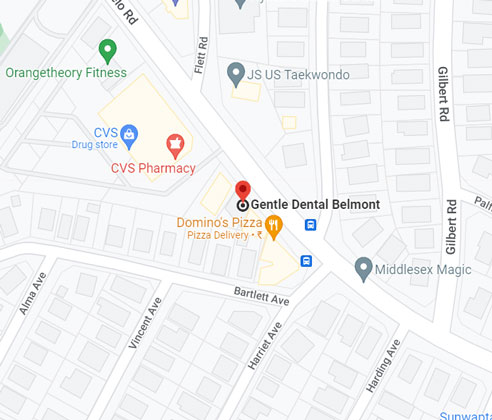Understanding Oral Surgery
At Gentle Dental Belmont, we provide a wide range of oral surgery services designed to address complex dental issues with precision and care. Whether you're dealing with wisdom tooth problems or require advanced surgical procedures, our team is here to ensure you receive the best care possible.
Understanding Oral Surgery
Oral surgery is a specialized field of dentistry focused on surgical interventions for dental and oral health issues. It encompasses a range of procedures to treat conditions that cannot be managed through traditional dental care. Patients typically seek oral surgery when they face more serious dental concerns that cannot be addressed through routine treatments.
What is Oral Surgery?
- Wisdom tooth removal: Extracting impacted or infected teeth.
- Dental implants: Replacing missing teeth with permanent, functional solutions.
- Bone grafting: Rebuilding areas of the jawbone that have deteriorated.
This field also covers surgical treatments for oral infections, jaw abnormalities, and more.
Conditions Addressed Through Oral Surgery
- Wisdom Tooth Extractions: Removing wisdom teeth that are impacted or causing discomfort.
- Dental Implants: Permanent solutions for missing teeth, involving the placement of titanium posts into the jawbone.
- Bone Grafting: Restoring lost bone in the jaw to support dental implants or other restorative procedures.
- Treatment of Oral Infections: Addressing infections that affect the mouth, gums, or surrounding structures.
- Jaw and Gum Issues: Surgical interventions for misaligned jaws, gum diseases, and more.
Distinguishing Oral Surgery from Maxillofacial Surgery
- Oral Surgery: Focused specifically on the mouth, teeth, gums, and related structures.
- Maxillofacial Surgery: Involves the jaw, facial bones, and structures beyond the mouth.
While both specialties overlap, they require different expertise. Oral surgeons are experts in procedures affecting the oral cavity, while maxillofacial surgeons handle the broader facial structures.
Surgical Procedures Explained
Preparing for Your Oral Surgery
- Consult with you to assess your health: Medical evaluations will help determine if you're ready for surgery.
- Discuss your options for anesthesia: We'll ensure you are comfortable with your choice of sedation or general anesthesia.
- Provide clear instructions: You may need to fast or adjust your medications before the procedure.
What to Expect During Your Oral Surgery
- Step-by-Step Overview: We'll guide you through the entire process, from check-in to post-operative care.
- Anesthesia and Sedation: Choose from local, IV, or general anesthesia to ensure comfort during the procedure.
- Pain Management: We take extra steps to minimize discomfort and ensure a smooth recovery process.
Post-Operative Care and Recovery
- Aftercare Instructions: Detailed guidance on how to manage pain, swelling, and any potential complications.
- Follow-up Visits: We schedule follow-up appointments to monitor healing and answer any questions you may have.
- Pain Management: Recommendations for pain relief and how to minimize discomfort during recovery.
Weighing the Risks and Benefits
Advantages of Undergoing Oral Surgery
- Permanent Solutions: Oral surgery offers lasting solutions for many dental problems, restoring full functionality.
- Improved Oral Health: Addressing underlying dental issues prevents more severe problems in the future.
- Enhanced Aesthetics: Procedures like dental implants and jaw realignment can greatly improve the appearance of your smile.
Potential Risks and Complications
- Infection: As with any surgery, there is a risk of infection, but proper care minimizes this risk.
- Bleeding: Some bleeding is normal after surgery, but excessive bleeding should be reported immediately.
- Anesthesia Risks: Our team ensures the safest options for anesthesia to avoid complications.
Recovery Insights and Timelines
Understanding Your Recovery Timeline
- Typical Recovery: Most patients begin feeling better within a few days, though full recovery may take longer depending on the procedure.
- Personalized Timeline: We provide specific recovery timelines based on your treatment.
Tips for a Smooth Recovery Process
- Dietary Restrictions: Avoid hard or crunchy foods and follow your diet guidelines to avoid complications.
- Rest and Hydration: Rest is crucial for healing, and staying hydrated helps reduce discomfort.
- Medication Adherence: Taking prescribed medications as directed helps manage pain and inflammation.
When to Seek Medical Advice
Recognizing Signs That Require Attention
- Persistent Swelling: If swelling lasts longer than expected, seek advice.
- Severe Pain: Intense or increasing pain may be a sign of a complication.
- Excessive Bleeding: If bleeding does not stop after the usual period, contact us.
Consultations and Care at Gentle Dental Belmont
Our team is always available to assist with any post-operative concerns and ensure you recover smoothly. Feel free to reach out at any time during your healing process.
Why Choose Gentle Dental Belmont for Oral Surgery
At Gentle Dental Belmont, we prioritize your health, comfort, and long-term oral wellness.
Experienced Surgeons
Our surgeons have extensive experience and specialize in various types of oral surgery, ensuring that you receive the best possible care.
Advanced Technology
We use state-of-the-art equipment for precise diagnosis and treatment, helping to ensure successful outcomes.
Community Trusted
Our Belmont community trusts us for our compassionate care and professional expertise. We're committed to restoring your smile and improving your quality of life.
Additional Actions
- Read blog posts on advancements in oral surgery.
- Contact us to schedule your consultation or appointment.
About Gentle Dental Belmont
We’re dedicated to providing high-quality dental care in a comfortable, patient-focused environment. Our team works to make your oral health journey as smooth as possible.



